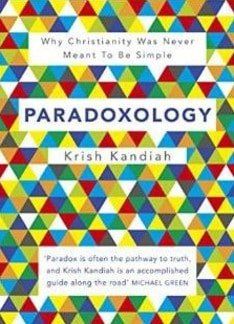Paradoxology
Krish Kandiah
Hodder & Stoughton, 308 pages, £13.99
ISBN: 978-1-444-74534-4
Star rating: 4
This lively book aims to demonstrate to the average believer that wrestling with the conundrums of the Christian life is essential to spiritual growth.
For example, why would the God who is everywhere invite his people to draw near? How could a moral God wipe out the Canaanites? Why did the agonised Job hear nothing from God for so long? How can Jesus be both fully human and fully divine — and why is it so important? How could Judas’ betrayal of Christ be both reprehensible and fully ordained?
Written by a mainstream evangelical, this book is saturated with Scripture and focused on the hope of the cross. It also incisively reveals the miserable beliefs of other world views and religions.
Using scriptural examples of faith in action, Kandiah demonstrates that a resilient faith must be able to honestly express doubt, amid the ups and downs of life. Furthermore, a mature Christian faith can avoid spiritual myopia by holding on to the ‘family history’ of the Old and New Testaments, waiting confidently for God to bring his long-term plans to fruition.
The text is highly readable, with plenty of helpful analogies. Addressing why Christians still struggle with sin, Kandiah says, ‘Our experience of the Christian life is always going to feel paradoxical, because we are people in transition.
‘We are like slaves, learning to be free. We are addicts, coming off our dependencies. We are newly-weds, getting used to our new identity. We are prisoners of war, venturing out of the camp. We are bankrupts rebuilding our lives, now that our debts have finally been paid. We are people sentenced to death, who have been given new life’.
Kandiah utilises many moving anecdotes, some autobiographical and some from contemporary history, such as the genocide in Kosovo. The book is firmly planted in reality.
However, the logic sometimes meanders, and, in covering such difficult territory so quickly, some may find the book lacking in depth. This is particularly the case when such questions are raised as whether some people are destined by God for hell, or why Christ had to die in such a barbaric way.
Nevertheless, this title makes many excellent, succinct points and should prove most helpful in carrying established Christians to greater maturity.
Ben Epps
Stevenage









